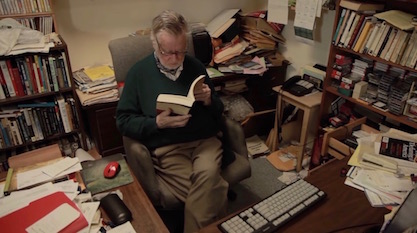 Evolution
Evolution
Why the Darwin Debate Seems So Intractable

James Kalb is the author of The Tyranny of Liberalism. Writing in the magazine Chronicles, he offers a nice review of Tom Bethell’s recent book from Discovery Institute Press, Darwin’s House of Cards. Bethell “has written an account of recent disputes over the fundamental validity of Darwinian theory,” a “clear and lively book,” “bring[ing] the story up to date.” Agreed, and thank you.
Kalb considers a question that many of our readers must have pondered: Why does the evolution debate seem so intractable? He speculates thoughtfully, considering a factor that probably gets less attention than it deserves. Darwinists and Darwin skeptics, says Kalb, bring to the evolution controversy fundamental, irreconcilable “differences in styles of thought.”
Darwinian theory pleases those who demand clear, simple accounts that seem adapted to scientific methods of investigation, and therefore offer hope of comprehensive explanations, while Darwinian skepticism appeals more to people who want accounts to be more open-ended, and more adequate to life as we find it. As a result, each side considers the other irrational.
He has other interesting things to say on the subject, and I’m sorry that his review is behind a paywall. But there’s a lot of truth in just that one observation. It’s true in other areas — current political discussions come to mind — where people find themselves totally unable to agree, or come even a step closer toward agreement, no matter how much time they spend talking and arguing.
It’s one of the irreducible aspects of human beings that we have these “styles” to our thinking, orientations that we can’t be talked out of, and that, as far as I can tell, seem inexplicable on any purely mechanical understanding of life. The materialist, Darwinist style insists on a concrete physical explanation of cosmic and biological origins, while the skeptical style is far more content with leaving matters open where that seems appropriate.
Is the latter style or orientation “more adequate to life as we find it,” that is, truer to life as we actually experience it? It is in my own experience, and in my own life. I can tell you that with confidence.
